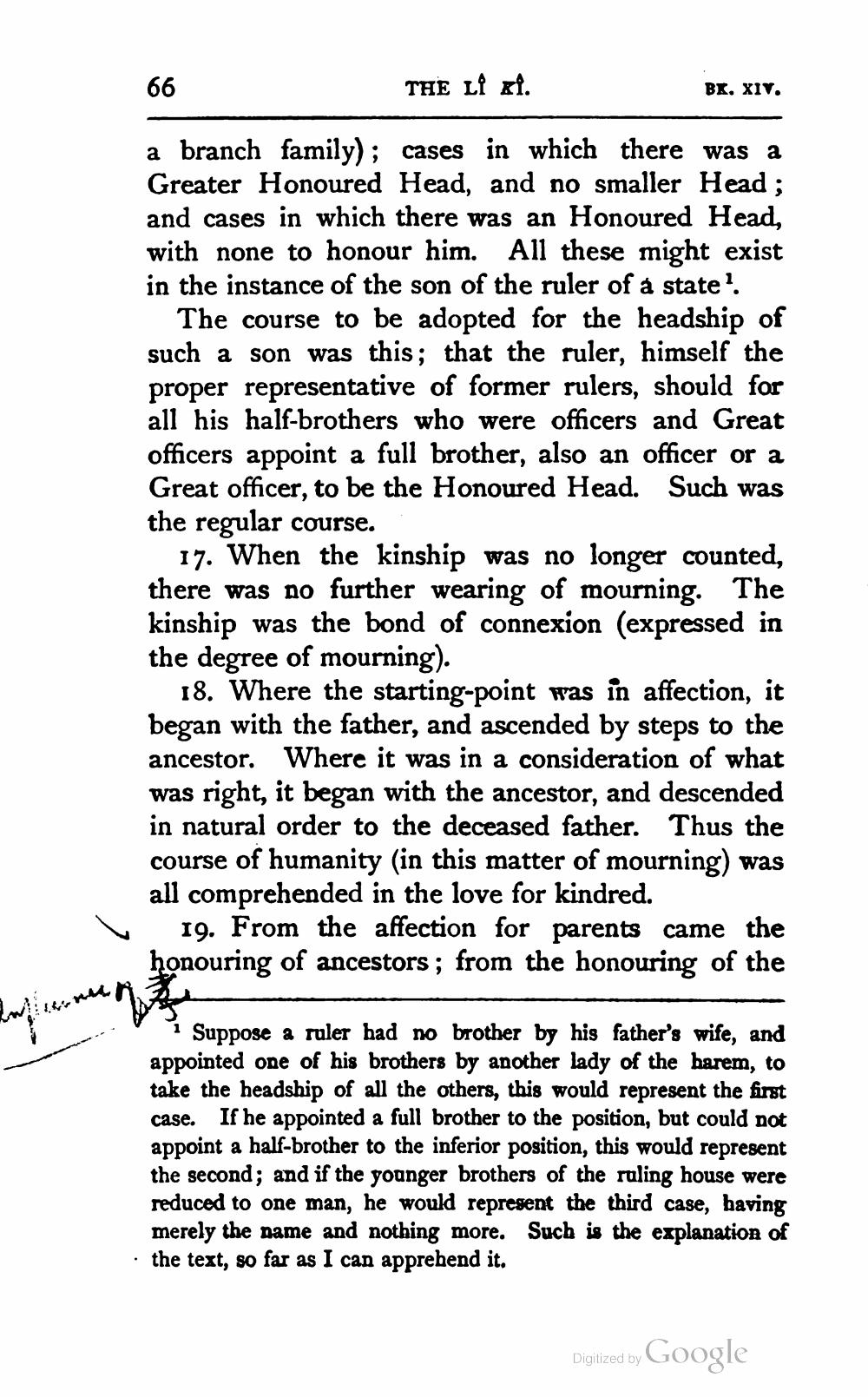________________
Kun
Enfiern
66
THE Lİ Kİ.
a branch family); cases in which there was a Greater Honoured Head, and no smaller Head; and cases in which there was an Honoured Head, with none to honour him. All these might exist in the instance of the son of the ruler of a state1.
BX. XIV.
The course to be adopted for the headship of such a son was this; that the ruler, himself the proper representative of former rulers, should for all his half-brothers who were officers and Great officers appoint a full brother, also an officer or a Great officer, to be the Honoured Head. Such was the regular course.
17. When the kinship was no longer counted, there was no further wearing of mourning. The kinship was the bond of connexion (expressed in the degree of mourning).
18. Where the starting-point was in affection, it began with the father, and ascended by steps to the ancestor. Where it was in a consideration of what was right, it began with the ancestor, and descended in natural order to the deceased father. Thus the course of humanity (in this matter of mourning) was all comprehended in the love for kindred.
19. From the affection for parents came the honouring of ancestors; from the honouring of the
Suppose a ruler had no brother by his father's wife, and appointed one of his brothers by another lady of the harem, to take the headship of all the others, this would represent the first case. If he appointed a full brother to the position, but could not appoint a half-brother to the inferior position, this would represent the second; and if the younger brothers of the ruling house were reduced to one man, he would represent the third case, having merely the name and nothing more. Such is the explanation of the text, so far as I can apprehend it.
Digitized by
Google




